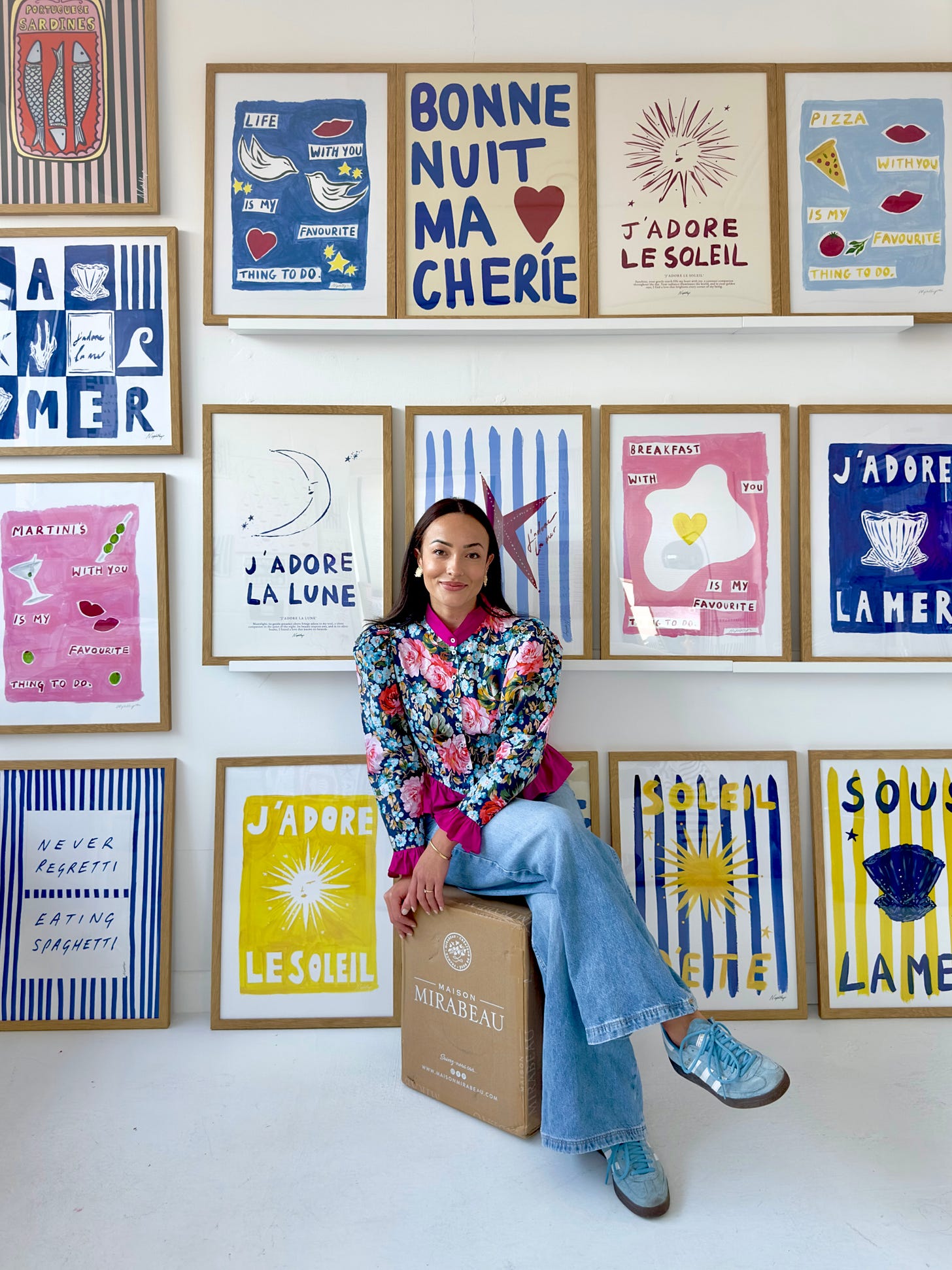Nephthys Foster: “I cry touching down in the Philippines – everyone looks like my mum”
The illustrator on loss, finding a Filipino community and how money complicates connection
Hi, welcome back to Mixed Messages! This week, I’m speaking to illustrator Nephthys Foster, who is of mixed-Filipino and white British heritage. I first met Nephthys at Salad Days Market, where her colourful prints and bright smile couldn’t help but draw a crowd. You’ll likely recognise her ‘bisou bisou’ prints and spaghetti squiggles, and can now see h…


